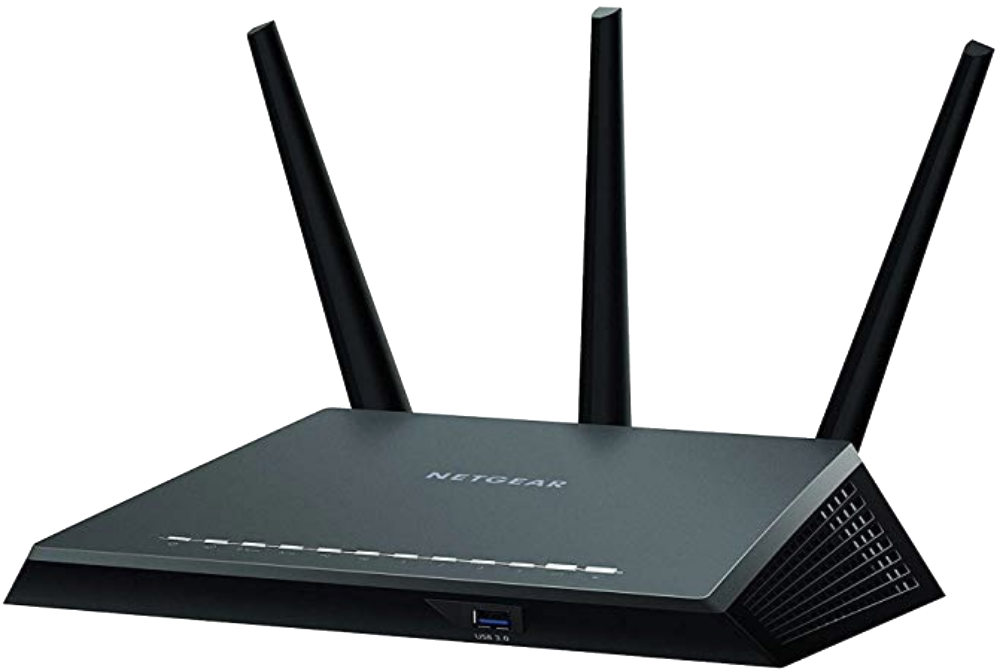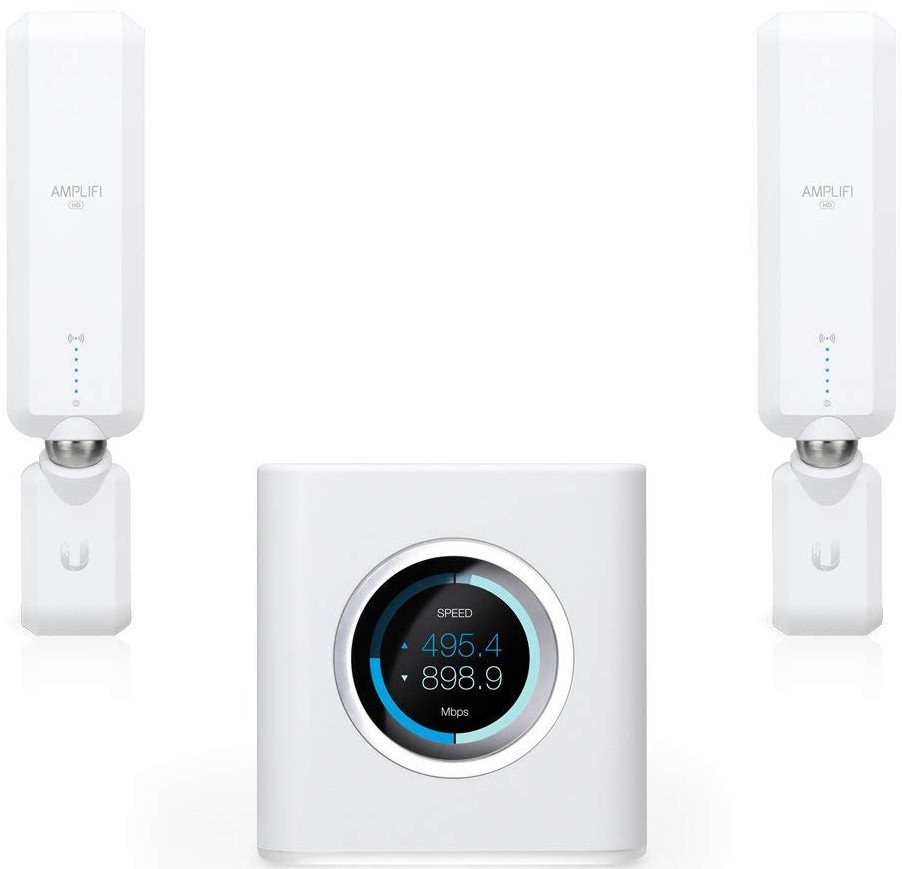
How many devices can I connect to my router?
More connected devices mean a hit to performance
Even though you can likely connect hundreds of devices wirelessly to your router, you won't want to. Not only will there be a ton of signal interference, the router hardware (like the processor and RAM) and services are likely not equipped to handle that many simultaneous connections, so speeds will suffer greatly.
For example, say your router is classed as AC2300, like the NETGEAR R7000P. This includes a 2.4GHz radio with throughput up to 600 Mbps and a 5GHz radio with throughput up to 1,625 Mbps. These speeds are theoretical and are dependent on other factors, but we can do some simple math to see the performance issue.
Even though you can likely connect hundreds of devices wirelessly to your router, you won't want to.
The R7000P Nighthawk with 10 devices connected simultaneously to its 5GHz radio could theoretically hit speeds of about 160 Mbps per device (1,625 divided by 10). As for the 2.4GHz radio at 600 Mbps, 10 devices connected simultaneously would drop theoretical speeds down to about 60 Mbps per device.
Using 10 devices simultaneously on both radios at once, for most people, is probably a rare occurrence, and the R7000P Nighthawk is still a great multipurpose router that includes a band steering feature to move devices between the radios for optimal performance. We've also rounded up a bunch of other awesome routers that can handle larger groups of people at longer range.
Don't forget to take into account the speeds being offered by your Internet Service Provider (ISP). A big router with plenty of throughput is going to be wasted if you're only paying for a 25 Mbps plan.
What about mesh networking?
Mesh networking kits have been gaining popularity, thanks to the offer of expansive Wi-Fi coverage from nodes placed around your home or office. They're great for blanketing large spaces in a reliable signal, but they suffer from the same basic limitations based on hardware and throughput.
You're still dealing with 2.4GHz and 5GHz radios with a maximum theoretical throughput, and in many cases, you'll spend more on a high-powered mesh system that's better suited for a high number of devices than you would on a single high-powered router. However, if you have a large space to cover and are sick of dead spots in your home, something like Ubuquiti's AmpliFi HD should alleviate a lot of problems and still have the capacity to handle more devices than are usually found in a regular household. You'll generally pay more, but for a lot of people, the cost is well worth a reliable network.
All the latest news, reviews, and guides for Windows and Xbox diehards.
Choose a router with strong performance and band steering
The R7000P Nighthawk dual-band router offers strong performance across its 2.4GHz and 5GHz radios, making it a good choice for those with an above-average number of devices to connect. Additional band steering automatically moves your devices to the radio that offers optimal performance, Quality of Service (QoS) control keeps data-hungry devices buffered, and MU-MIMO delivers uninterrupted data to your modern devices. As long as you don't have an enormous space better cut out for a mesh network and don't need a router specialized for gaming, you shouldn't have any problems with the R7000P.

Great router for those with many devices
The NETGEAR R7000P Nighthawk is the updated version of the R7000, now offering slightly higher speeds in its 5 GHz band and a bit better range. The 2.4GHz band offers speeds up to 600 Mbps for 802.11a/b/g/n devices, and the 5GHz band offers speeds up to 1,625 Mbps for 802.11ac devices. Bandwidth is automatically prioritized to deliver lag-free gaming and video streaming, and four Ethernet ports provide access for plenty of wired connections.
Opt for a mesh networking system for large spaces
If the issue with your network also involves hitting every back corner (and even your backyard) with a Wi-Fi signal, a mesh Wi-Fi setup is likely in the cards. Ubiquiti's AmpliFi HD is a strong choice, with powerful AC1750 performance, superb range, automatic band steering, and easy setup and management. Start with a single router and expand your network, or go for the whole setup from the start with a main router and two MeshPoints.

Best for large spaces
Ubiquiti's AmpliFi HD not only has the best-looking main router on this list with a large touch display, but it also offers excellent range and throughput for a large home, especially when connected to a couple of mesh points. We saw strong performance across the 2.4GHz (up to 450 Mbps) and 5GHz (up to 1,300 Mbps) bands, helped along by three spatial streams and three antennas.

Cale Hunt brings to Windows Central more than nine years of experience writing about laptops, PCs, accessories, games, and beyond. If it runs Windows or in some way complements the hardware, there’s a good chance he knows about it, has written about it, or is already busy testing it.
